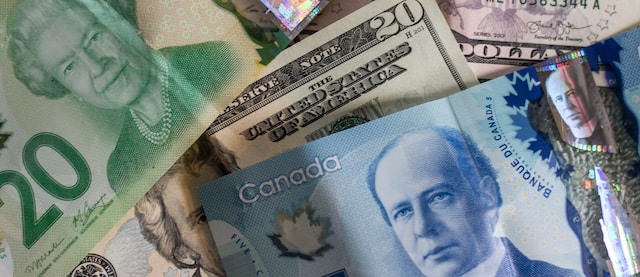Deloitte: “Canada heading into ‘mild’ recession”

TORONTO – Canada is heading into a “mild” recession as high borrowing costs, an economic downturn in the United States and persistent inflation add to the country’s economic uncertainty, new research reveals. Deloitte Canada’s latest economic outlook, released Tuesday ahead of the federal budget, says tight monetary policy is set to constrict economic growth this year. But research suggests the recession won’t be as deep as previously expected, thanks to resilient labor markets, which keep incomes strong.
The report expects real gross domestic product to decline by 0.5% this year before rebounding to 2% growth in 2024, while inflation is expected to cool rapidly for the remainder of the year.
As we all know, the world’s central banks, including Canada, have raised interest rates to cool overheated economies and suppress persistently high inflation. The Bank of Canada moved its rate from 0.25% in March 2022 to the current level of 4.5% in just ten months. Inflation was 6.3% in December 2022 and 5.9% in January 2023, still well above the central bank’s 2% target. The Bank of Canada has for now decided to pause to see if the drop in economic output is enough to further push inflation down without further rate hikes. “Although the level of inflation has come down in recent months, it is still too high and the Bank of Canada’s pause on rate hikes is conditional on inflation continuing to decelerate in line with their expectations,” says Trevin Stratton by Deloitte Canada. “Taking into account the near-term decline in economic output, our forecast projects a rapid cooling of inflation throughout the remainder of the year”.
Indeed, Deloitte expects inflation in Canada to fall to 3.5% in the second quarter of 2023 and approach the 2% target in 2024. As a cooling economy reduces inflation, the Canadian central bank should start lowering interest rates by the end of 2023 and throughout 2024 to reach the neutral level of 3%, which neither stimulates nor suppresses economic growth. However, the US Federal Reserve is expected to continue raising rates to 5.25% by June to aggressively target its inflation, which was slightly above 6.4% in January 2023.
The projected gap between US and Canadian rates will reduce the value of the loonie (Canadian dollar) to an estimated average of US$0.726 in the second and third quarters of 2023. On the consumer side, confidence and spending are declining due to inflation and higher interest rates.
Deloitte expects Canadians to continue to reduce spending in the short term, particularly on vehicles, clothing, recreation and consumer spending is projected to decline at an annualized rate of 0.1% in Q1 2023, drop by another 0.6% in Q2 2023 and then start to rebound in the second half to reach 0.9% average growth for 2023. Moderating inflation and interest rates should boost real consumer spending by 2.6% in 2024. Deloitte also expects the housing market to reach its nadir in the third quarter of 2023, with rate cuts expected at the end of the year and into 2024, driving the recovery. High immigration targets will also help preserve Canada’s housing bubble. The strong labor market will in turn help moderate the severity of this year’s recession. Between November and February, 268,000 jobs were created, while the unemployment rate is at 5%. Wage earnings remain below inflation. However, a slowdown is emerging in terms of job vacancies, which fell from 6% in April 2022 to 4.2% at the end of 2022. Sectors such as transport, construction and business services are expected to suffer a short-term decline in employment levels, pushing unemployment to 5.6% by early 2024.
Pic by John McArthur from Unsplash



